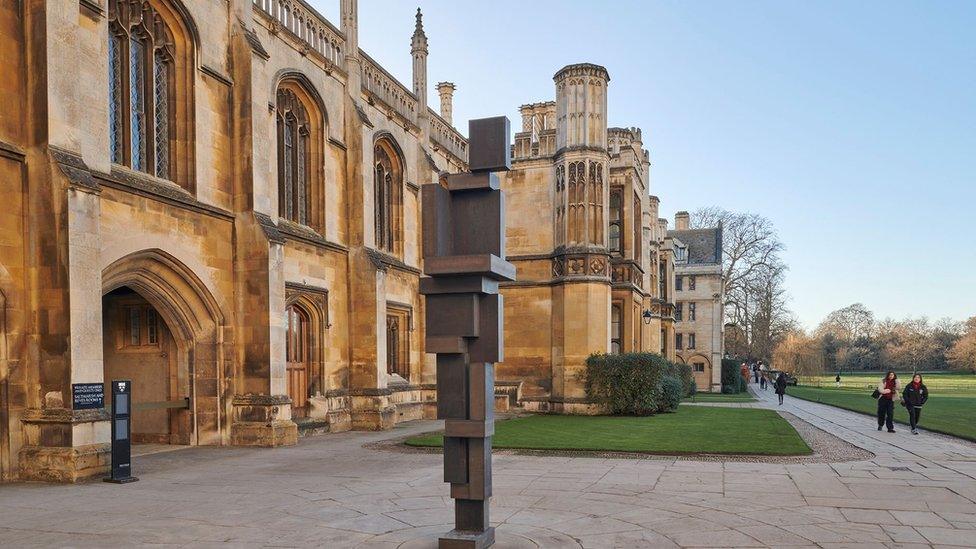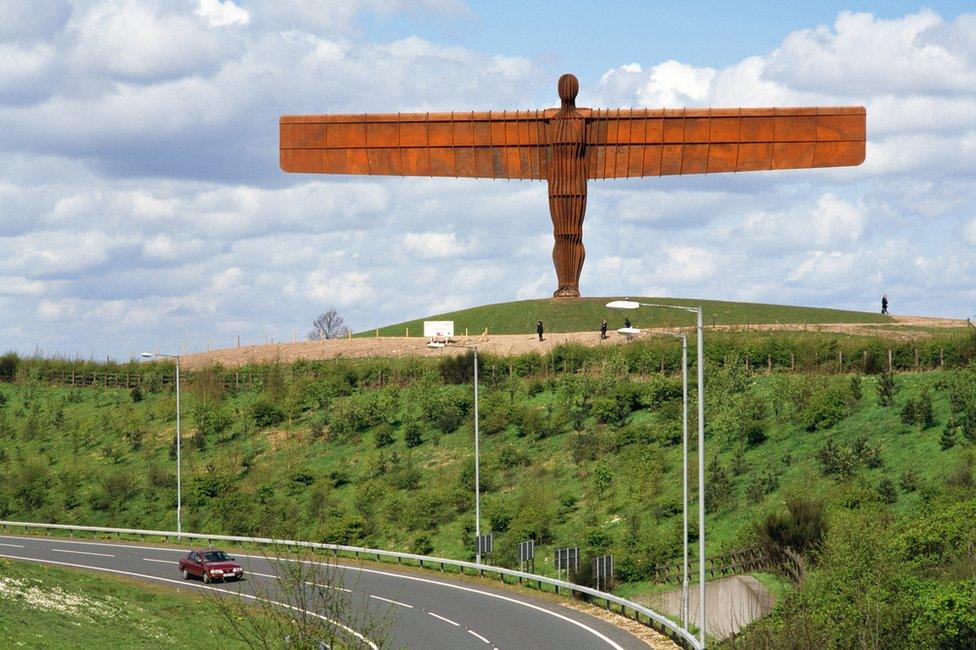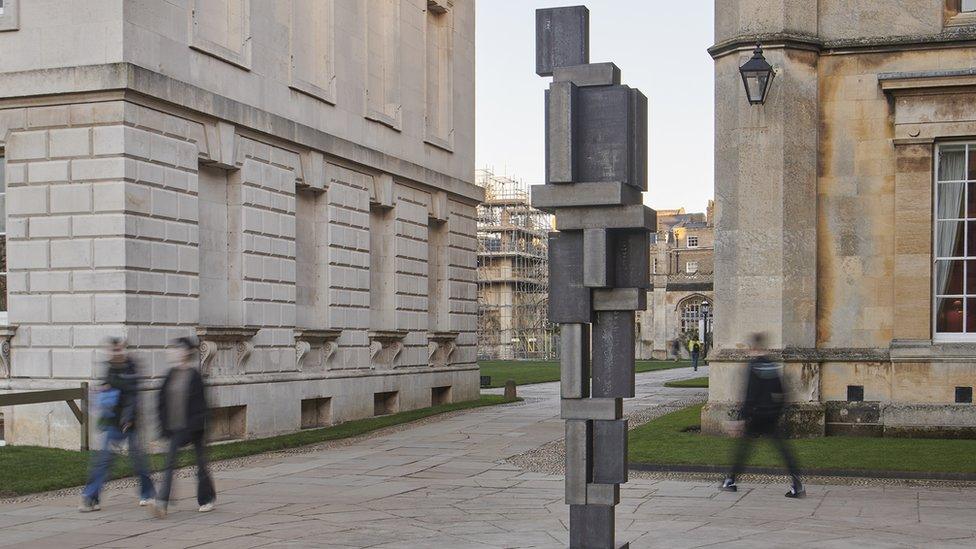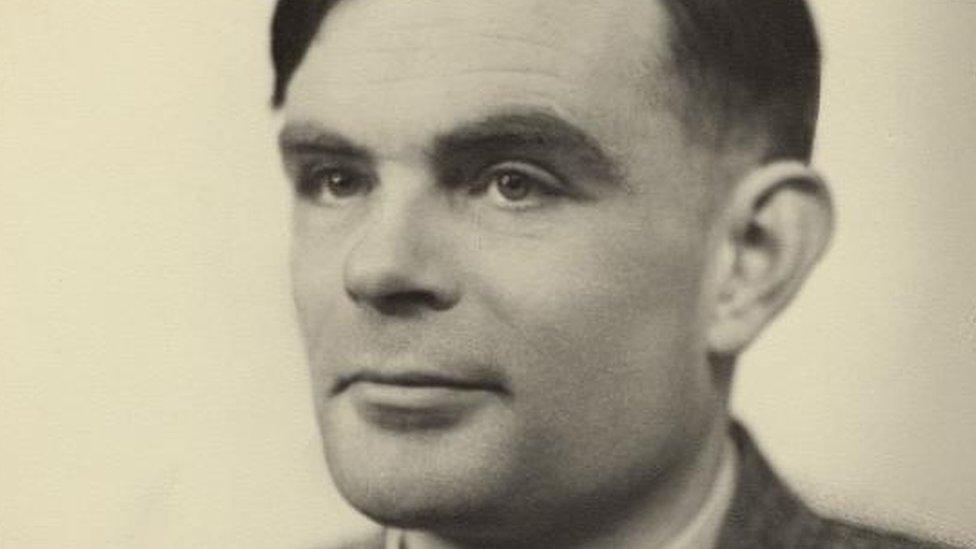New sculpture celebrates Alan Turing at the University of Cambridge
- Published

The Antony Gormley sculpture commemorates codebreaker Alan Turing who studied at King's College, Cambridge
A sculpture to commemorate the wartime codebreaker Alan Turing has been unveiled at the University of Cambridge's King's College.
The work, by Sir Antony Gormley, best known for The Angel of the North, stands at 12.1ft (3.7m) tall.
Sir Antony said the sculpture was not a "memorialisation of a death, but about a celebration of the opportunities that a life allowed".
The creation can be seen between Gibbs Building and Webb's Court.
1912 – 1954
1912 Alan Mathison Turing was born in West London
1936 Produced “On Computable Numbers”, aged 24
1952 Convicted of gross indecency for his relationship with a man
2013 Received royal pardon for the conviction
Turing, the Bletchley Park codebreaker, played a crucial part in the Allies' victory over Nazi Germany in World War Two.
He studied at King's College from 1931 to 1934 and was elected a fellow there in 1935.
The sculpture was made from 5.5in (140 mm) thick rolled Corten steel, a material used often by Sir Antony in other works.
He said: "Corten contains 1% of copper which means it will oxidise over time, forming a rich red rust surface. The sculpture's relationship with time and weather is an integral part of its character."
Gillian Tett, provost of King's College, praised the artwork for reflecting both "Turing's brilliance and his vulnerability".
"At the same time the sculpture also embodies the transformation of the industrial in to the information age," she said.

Sculptor Sir Antony Gormley created the iconic Angel of the North in Gateshead
In August 2022, Historic England told Cambridge City Council's planning committee, external that the sculpture would be "far more visible" than the proposals implied and could cause "some harm" to the significance of the historic college.
However it was and approved and the college thanked the council for supporting the project as it would "give food for thought and pleasure to countless generations to come".

The new sculpture can be seen at Cambridge's King's College
The sculpture's location meant it would be visible daily to staff and students but the college said it would make the work accessible to visitors and school groups through pre-arranged bookings.
Sir Antony said: "I want this work to be something that the life of the college lives with and that will be a continual source of questioning, of projection, a marker of an elusive relationship to a person and our evolving time."

Follow East of England news on Facebook, external, Instagram, external and X, external. Got a story? Email eastofenglandnews@bbc.co.uk, external or WhatsApp 0800 169 1830
- Published4 August 2022
